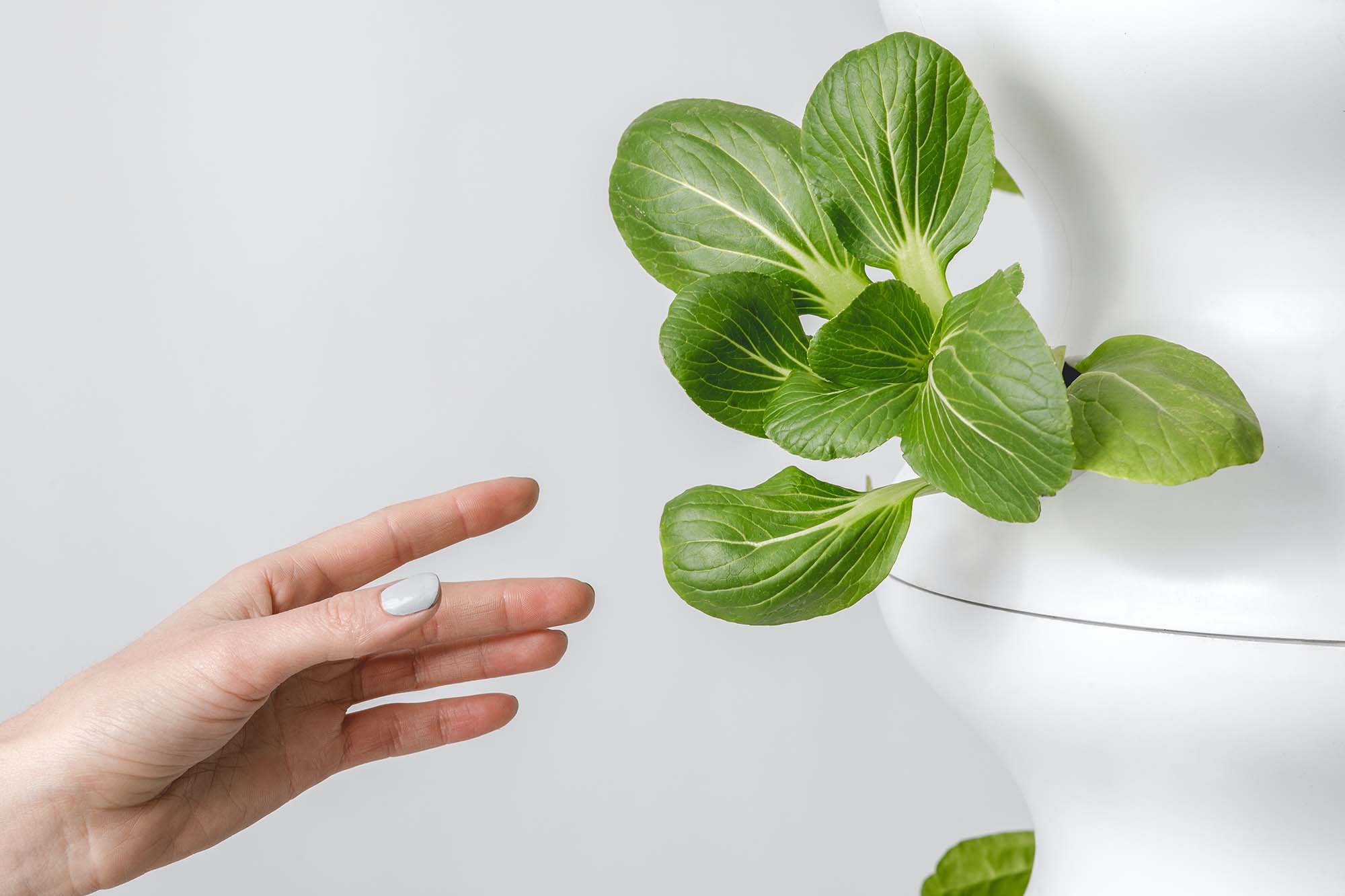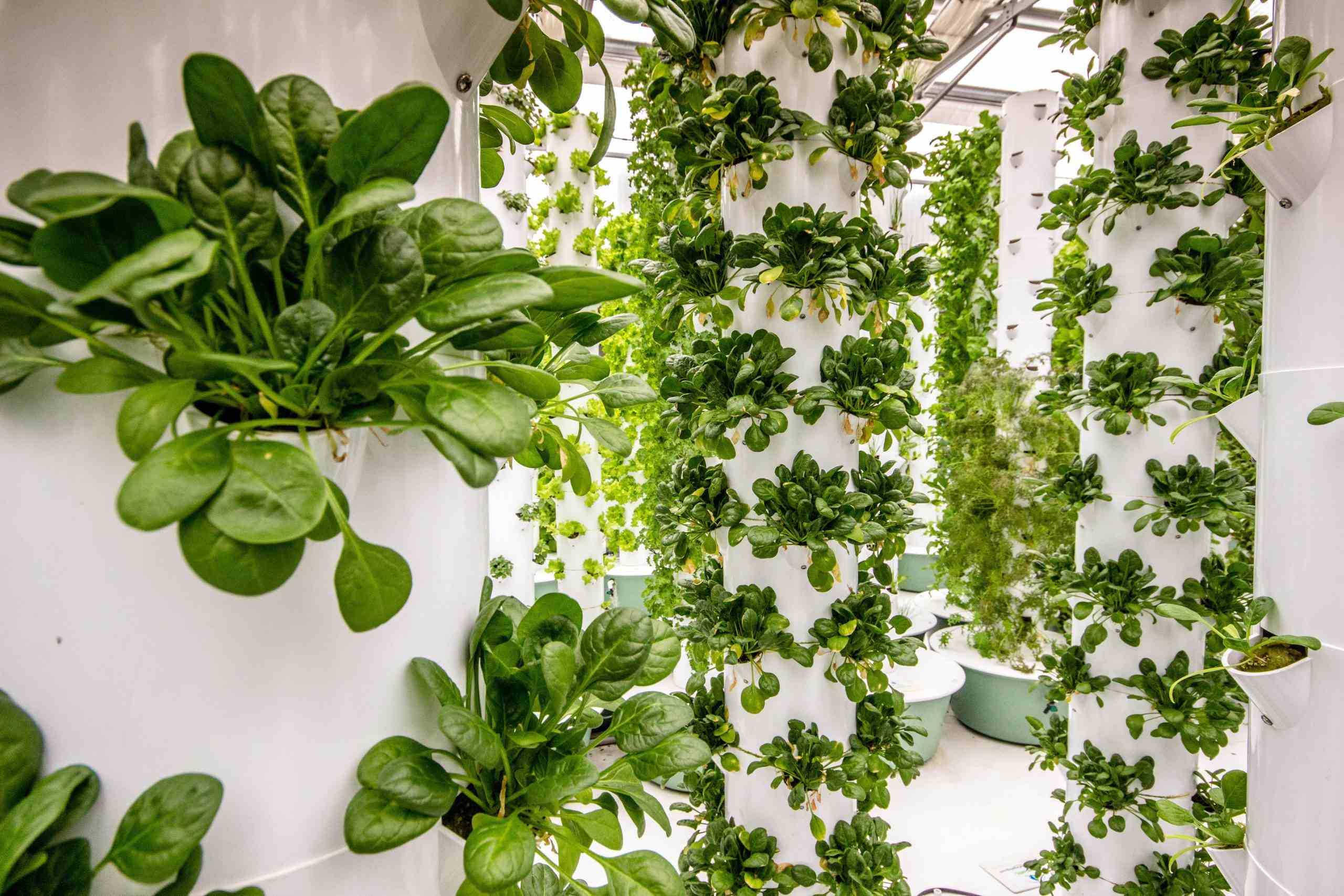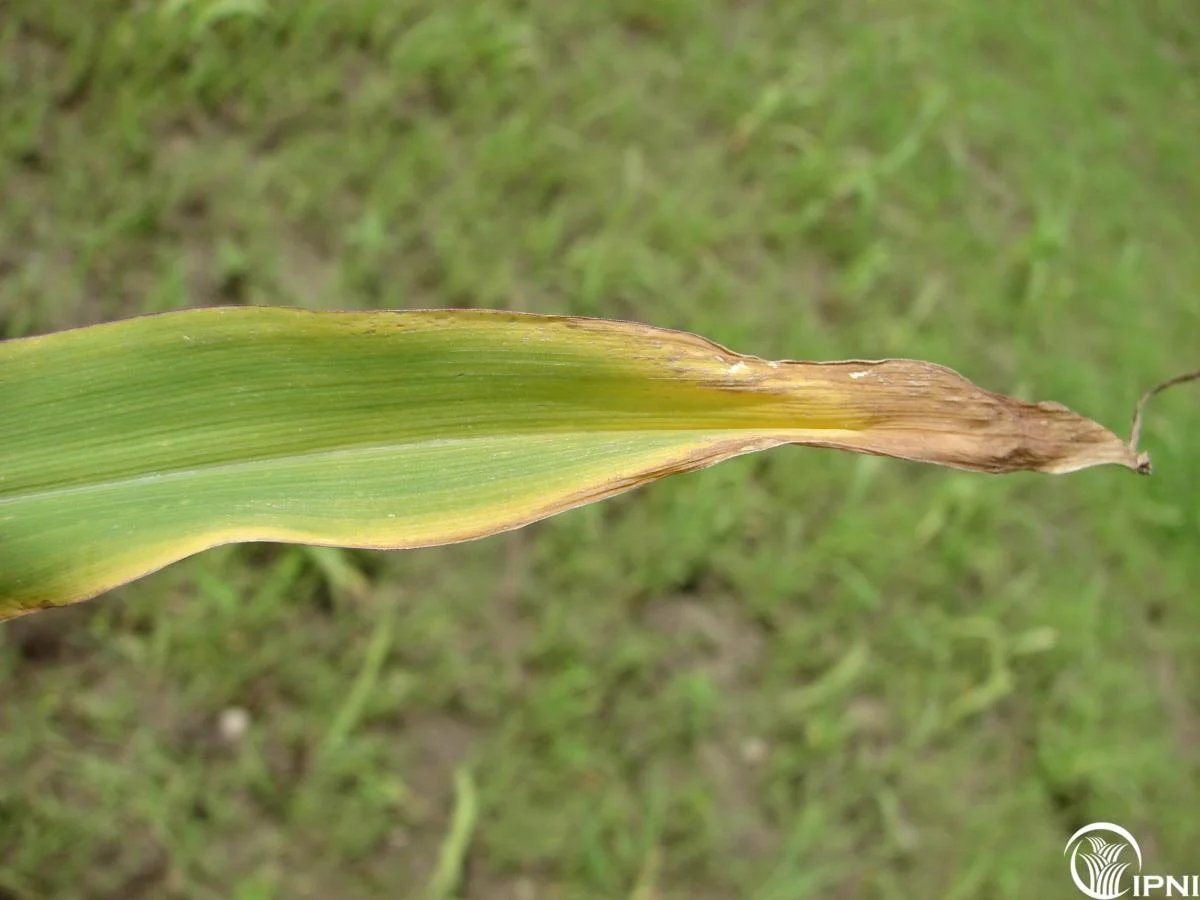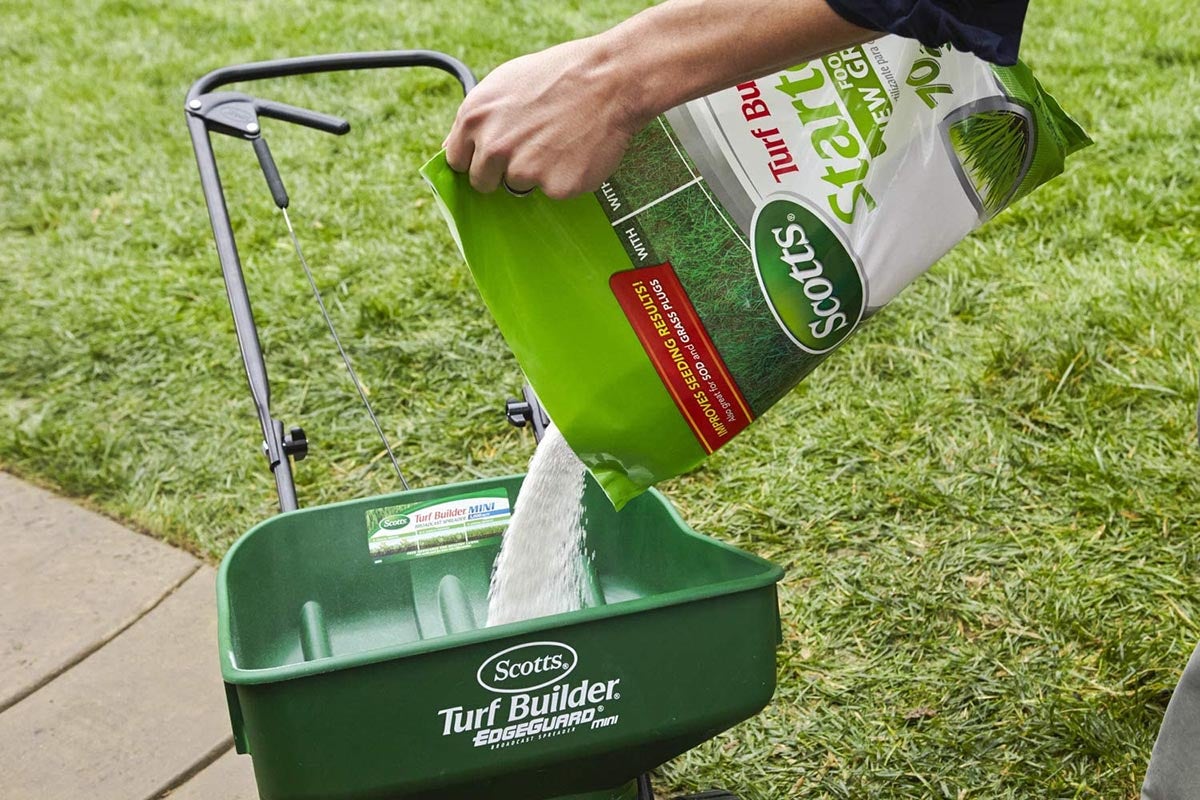Home>Gardening News and Trends>Gardening Trends>What Nutrients To Use In Aeroponics


Gardening Trends
What Nutrients To Use In Aeroponics
Modified: January 22, 2024
Discover the latest gardening trends in aeroponics and learn which nutrients are essential for successful plant growth.
(Many of the links in this article redirect to a specific reviewed product. Your purchase of these products through affiliate links helps to generate commission for Chicagolandgardening.com, at no extra cost. Learn more)
Table of Contents
- Introduction
- Benefits of Aeroponics
- Understanding Nutrient Requirements in Aeroponics
- Essential Nutrients for Aeroponics Systems
- Macronutrients for Aeroponics
- Micronutrients for Aeroponics
- pH and Nutrient Balance in Aeroponics
- Adjusting Nutrient Levels in Aeroponics
- Common Nutrient Deficiencies in Aeroponics
- Nutrient Management Strategies in Aeroponics
- Conclusion
Introduction
Gardening has always been a popular and rewarding hobby, but in recent years, there has been a surge of interest in a unique gardening technique known as aeroponics. This innovative method of growing plants allows for maximum root exposure to oxygen, resulting in faster growth rates, increased productivity, and healthier plants. In aeroponics, plants are suspended in air and nourished with a nutrient-rich mist, eliminating the need for soil and minimizing the risk of pests and diseases.
One of the key factors for successful aeroponic gardening is understanding the right balance of nutrients that plants need to thrive. In traditional soil-based gardening, plants obtain nutrients from the soil, but in aeroponics, it is necessary to provide them with a carefully formulated nutrient solution.
By optimizing nutrient levels and maintaining the ideal pH balance, growers can ensure that plants receive the essential nutrients they need for robust growth and development. In this article, we will explore the different nutrients required for aeroponics systems, the importance of maintaining nutrient balance, and strategies for managing nutrient deficiencies.
Whether you are a seasoned gardener or a novice enthusiast, understanding the unique nutrient requirements of aeroponics can help you achieve remarkable results and take your gardening skills to new heights. So, let’s dive into the world of aeroponic gardening and explore the essential nutrients needed for thriving plants.
Benefits of Aeroponics
Aeroponics offers numerous advantages over traditional soil-based gardening and even other hydroponic systems. Let’s take a closer look at some of the key benefits of using aeroponics:
- Rapid Growth: One of the most significant benefits of aeroponics is the accelerated growth rate of plants. With their roots continuously exposed to oxygen, plants are able to uptake nutrients more efficiently, resulting in faster growth and higher yields.
- Water Conservation: Aeroponics is an incredibly water-efficient method of gardening. Unlike traditional soil-based gardening, which requires large amounts of water, aeroponics uses up to 95% less water. The nutrient-rich mist is delivered directly to the roots, minimizing water waste.
- No Soil Required: In aeroponics, plants are grown without the need for soil. This eliminates the risk of soil-borne diseases, pests, and weeds. It also makes it possible to grow plants in environments where soil conditions are less than ideal.
- Space Efficiency: Aeroponic systems are well-suited for indoor gardening and have a small footprint, making them ideal for urban environments or those with limited space. Vertical aeroponic towers or racks can maximize growing space and allow for year-round cultivation.
- Reduced Chemical Use: With aeroponics, there is a reduced need for pesticides and herbicides since the controlled environment limits the exposure to pests and weeds. This makes aeroponics a more sustainable and environmentally friendly gardening method.
- Year-Round Cultivation: Aeroponics allows for year-round cultivation, regardless of the weather conditions outside. This enables growers to have a constant supply of fresh, homegrown produce, even during the off-season.
These benefits make aeroponics an attractive option for both commercial growers and home gardeners who are looking for a more efficient and sustainable way to grow plants. The ability to achieve faster growth rates, conserve water, and cultivate plants in a controlled environment makes aeroponics a game-changer in the world of gardening.
Understanding Nutrient Requirements in Aeroponics
When practicing aeroponic gardening, it is crucial to understand the nutrient requirements of plants to ensure their optimal growth. Unlike in traditional soil-based gardening, where plants derive nutrients from the soil, aeroponic plants rely on a nutrient solution to meet their nutritional needs.
The nutrient solution used in aeroponics must contain a balanced combination of macronutrients and micronutrients. Macronutrients are required in larger quantities, while micronutrients are needed in smaller amounts. These nutrients are crucial for plant development, including root growth, leaf expansion, flowering, and fruit production.
In aeroponics, it is essential to pay attention to the nutrient concentration and pH level of the solution. The nutrient concentration refers to the amount of nutrients present in the solution, while the pH level measures the acidity or alkalinity of the solution.
Monitoring and adjusting the nutrient solution is a continuous process in aeroponics. The nutrient levels may need to be altered based on the plant’s growth stage, environmental conditions, and specific crop requirements. Regular testing of the solution is recommended to ensure that plants receive the optimal balance of nutrients.
To maintain proper nutrient levels in aeroponics, it is essential to understand the specific macronutrients and micronutrients that plants need. Let’s explore the key nutrients required for aeroponic systems.
Essential Nutrients for Aeroponics Systems
For plants to thrive in aeroponics systems, they require a complete and balanced supply of essential nutrients. These nutrients can be categorized into two groups: macronutrients and micronutrients.
Macronutrients: Macronutrients are needed in larger quantities by plants and play a crucial role in their growth and development. The primary macronutrients required for successful aeroponic gardening are:
- Nitrogen (N): Nitrogen is essential for vegetative growth, leaf development, and the formation of proteins, enzymes, and chlorophyll. A deficiency in nitrogen can result in stunted growth and yellowing of leaves.
- Phosphorus (P): Phosphorus is vital for root development, flower formation, and overall plant energy transfer. It is particularly important during the early stages of plant growth and for the production of fruits and seeds.
- Potassium (K): Potassium is involved in many plant functions, such as nutrient uptake, water regulation, enzyme activation, and disease resistance. It promotes overall plant health and improves the tolerance of environmental stressors.
- Calcium (Ca): Calcium contributes to cell wall strength, root development, and nutrient uptake. It also helps prevent disorders such as blossom end rot in tomatoes and peppers.
- Magnesium (Mg): Magnesium is a key component of chlorophyll, the pigment responsible for photosynthesis. It is crucial for the production of energy-rich compounds and optimal plant growth.
- Sulfur (S): Sulfur is essential for protein synthesis, enzyme activation, and overall plant health. It aids in the formation of essential oils and contributes to the flavor and aroma of plants.
Micronutrients: While plants require macronutrients in larger quantities, they also need micronutrients, albeit in smaller amounts. Micronutrients are involved in various biochemical processes and are essential for healthy plant growth. Some key micronutrients include:
- Iron (Fe): Iron is critical for chlorophyll formation, photosynthesis, and enzyme production. A lack of iron can lead to yellowing of leaves, impairing plant growth.
- Zinc (Zn): Zinc plays a vital role in enzyme activation, hormone synthesis, and protein production. It is necessary for the proper development of leaves and stems.
- Boron (B): Boron is necessary for cell wall formation, pollination, and the transport of sugars. It also helps with the uptake of other nutrients.
- Copper (Cu): Copper is involved in nitrogen metabolism, enzyme activity, and the production of chlorophyll. It is important for overall plant growth and development.
- Manganese (Mn): Manganese assists in photosynthesis, enzyme activation, and the breakdown of carbohydrates. It is essential for healthy leaves and proper seed development.
- Molybdenum (Mo): Molybdenum is necessary for nitrogen fixation, enzyme activity, and the production of proteins and nucleic acids. It is particularly important for leguminous plants.
Providing plants with the appropriate balance of macro and micronutrients in aeroponics systems is essential for maintaining healthy growth and maximizing yields. Understanding the specific nutrient requirements of different plants will help achieve optimum results in aeroponic gardening.
Macronutrients for Aeroponics
In aeroponics systems, macronutrients play a vital role in meeting the nutritional needs of plants. These essential elements are required in larger quantities and are crucial for various physiological processes, including growth, development, and overall plant health.
Let’s take a closer look at the key macronutrients needed in aeroponics:
- Nitrogen (N): Nitrogen is a crucial macronutrient for plants in aeroponics. It is essential for the synthesis of proteins, enzymes, and chlorophyll, which are vital for vegetative growth and photosynthesis. Without an adequate supply of nitrogen, plants may exhibit stunted growth, yellowing of leaves, and decreased overall vigor. Common sources of nitrogen for aeroponic systems include ammonium nitrate, calcium nitrate, and urea.
- Phosphorus (P): Phosphorus is another key macronutrient required for optimal plant growth in aeroponics. It plays a critical role in energy transfer, root development, and the production of flowers, fruits, and seeds. Adequate phosphorus levels boost plant immunity and improve overall crop yield. Phosphoric acid, monopotassium phosphate, and rock phosphate are commonly used phosphorus sources in aeroponic nutrient solutions.
- Potassium (K): Potassium is an essential macronutrient that contributes to overall plant health and resilience in aeroponics. It is involved in numerous physiological processes, including water regulation, nutrient uptake, enzyme activation, and disease resistance. Optimal potassium levels improve plant vigor, enhance flower and fruit quality, and increase tolerance to environmental stressors. Potassium nitrate, potassium sulfate, and potassium phosphate are commonly used potassium sources for aeroponic systems.
- Calcium (Ca): Calcium is a vital macronutrient for plant development in aeroponics. It helps in cell wall formation, root growth, and nutrient uptake. Adequate calcium levels also reduce the risk of disorders such as blossom end rot in tomatoes and peppers. Calcium nitrate and calcium chloride are commonly used sources of calcium in aeroponic nutrient solutions.
- Magnesium (Mg): Magnesium is an essential macronutrient for chlorophyll synthesis and photosynthesis in aeroponics. It is a central component of the chlorophyll molecule and plays a crucial role in energy production within plants. Magnesium deficiencies can result in yellowing of older leaves and reduced photosynthetic activity. Magnesium sulfate, also known as Epsom salt, is a commonly used source of magnesium in aeroponic systems.
- Sulfur (S): Sulfur is a macronutrient that is essential for protein synthesis, enzyme activity, and overall plant health in aeroponics. It plays a crucial role in the formation of amino acids, vitamins, and other essential compounds. Sulfur deficiencies can lead to reduced plant growth and chlorosis. Elemental sulfur and potassium sulfate are commonly used sources of sulfur in aeroponic nutrient solutions.
Properly balancing and maintaining the levels of these macronutrients in the aeroponic nutrient solution is crucial for providing plants with the necessary nutritional support for robust growth and development. An appropriate understanding of macronutrient requirements will help maximize the potential of aeroponic gardening and ensure healthy and productive plants.
Micronutrients for Aeroponics
In addition to macronutrients, micronutrients play a crucial role in plant growth and development in aeroponics. Although micronutrients are required in smaller quantities, they are equally essential for various biochemical processes and overall plant health.
Let’s explore some of the key micronutrients needed for optimal plant growth in aeroponics:
- Iron (Fe): Iron is a critical micronutrient that is essential for chlorophyll synthesis, photosynthesis, and enzyme production. It plays a vital role in electron transfer and energy production within plants. Iron deficiencies can lead to yellowing of leaves, a condition known as chlorosis. Iron chelates, such as iron EDTA or iron DTPA, are commonly used to ensure adequate iron supply in aeroponic nutrient solutions.
- Zinc (Zn): Zinc is an important micronutrient involved in enzyme activation, hormone synthesis, and protein production in aeroponics. It plays a crucial role in overall plant growth and development, particularly in root and shoot development. Zinc deficiencies can result in stunted growth and reduced crop yield. Zinc sulfate is commonly used as a zinc source in aeroponic nutrient solutions.
- Boron (B): Boron is a micronutrient essential for various physiological processes in aeroponic plants, including cell wall formation, pollen tube development, and sugar transport. Adequate boron levels are critical for optimal fruit and seed development. Boric acid or borax is commonly used as a source of boron in aeroponic nutrient solutions.
- Copper (Cu): Copper is a micronutrient necessary for chlorophyll formation, nitrogen metabolism, and enzyme activity in aeroponics. It plays a vital role in plant growth and development, including root development and reproductive processes. Copper deficiencies can lead to reduced growth and curling of leaves. Copper sulfate or copper chelates are commonly used as copper sources in aeroponic nutrient solutions.
- Manganese (Mn): Manganese is a micronutrient involved in photosynthesis, enzyme activation, and carbohydrate breakdown in aeroponics. It is necessary for healthy leaves, proper seed production, and overall plant growth. Manganese deficiencies can result in chlorosis and reduced crop productivity. Manganese sulfate is commonly used to supplement manganese in aeroponic nutrient solutions.
- Molybdenum (Mo): Molybdenum is a micronutrient essential for nitrogen fixation, enzyme activity, and the production of proteins and nucleic acids in aeroponics. It plays a crucial role in overall plant growth and development, particularly in leguminous plants. Molybdenum deficiencies can lead to yellowing of leaves and impaired crop yield. Sodium molybdate or ammonium molybdate is commonly used as a molybdenum source in aeroponic nutrient solutions.
These micronutrients, though required in smaller quantities, are indispensable for various plant physiological processes. Ensuring that plants receive adequate amounts of these micronutrients in aeroponic nutrient solutions is essential for promoting healthy plant growth, maximizing yields, and preventing micronutrient deficiencies.
pH and Nutrient Balance in Aeroponics
One crucial aspect of successful aeroponic gardening is maintaining the proper pH level and nutrient balance in the nutrient solution. The pH level refers to the acidity or alkalinity of the solution and plays a significant role in nutrient availability and plant health.
The ideal pH range for aeroponic systems typically falls between 5.5 to 6.5, slightly on the acidic side. This pH range ensures that essential nutrients are readily available for uptake by plant roots. pH levels that are too high or too low can result in nutrient deficiencies or toxicities, negatively impacting plant growth and overall productivity.
Regular monitoring of the pH level is essential in aeroponics, as it can fluctuate due to nutrient uptake, container materials, and environmental factors. If the pH deviates from the optimal range, adjustments can be made using pH adjusters like phosphoric acid or potassium hydroxide to bring it back to the desired level.
Along with maintaining the appropriate pH level, it is crucial to maintain the balance of nutrients in the aeroponic system. The nutrient solution should contain the necessary macro and micronutrients in the right proportions to meet the specific needs of the plants being grown.
Imbalances in nutrient levels can occur due to factors such as improper nutrient mixing, fluctuating environmental conditions, or excessive flushing of the system. These imbalances can lead to nutrient deficiencies or toxicities, hindering plant growth and productivity. Regular monitoring of nutrient levels and adjustments to the nutrient solution are vital to ensure the optimal nutrient balance.
It’s important to note that different crops may have varying nutrient requirements. Additionally, the nutrient requirements may change as the plants progress through different growth stages. Monitoring nutrient levels, observing plant health and growth, and adjusting the nutrient solution accordingly will help maintain the ideal nutrient balance in the aeroponic system.
By carefully managing pH levels and nutrient balance in the aeroponic system, growers can provide their plants with the optimal conditions for growth and development. This attention to detail ensures that the plants receive the necessary nutrients in the right amounts, leading to healthy, robust plants and abundant yields.
Adjusting Nutrient Levels in Aeroponics
Achieving the right nutrient balance in aeroponics requires careful monitoring and adjustment of nutrient levels in the nutrient solution. As plants grow and environmental conditions change, it is important to regularly assess nutrient levels and make necessary adjustments to ensure optimal plant health and growth.
Here are some strategies for adjusting nutrient levels in aeroponics:
- Regular Monitoring: Regularly monitoring the nutrient levels in the aeroponic system is critical to catch any imbalances or deficiencies early on. This can be done through regular testing of the nutrient solution using electrical conductivity (EC) meters or nutrient testing kits. Monitoring can help identify any deviations from the desired nutrient levels.
- Observing Plant Health: Observing the visual signs of plant health can provide valuable insights into nutrient deficiencies or imbalances. Yellowing or discolored leaves, stunted growth, or poor flowering and fruiting can indicate nutrient deficiencies or excesses. By closely observing the plants, adjustments to the nutrient solution can be made accordingly.
- Adjusting Nutrient Strength: If nutrient levels are deemed too low, an increase in the strength of the nutrient solution can be made by adding more concentrated nutrient mixes. Conversely, if nutrient levels are too high, diluting the nutrient solution with water can help bring the levels back to the desired range.
- Micro and Macro Adjustments: Depending on the specific deficiency or imbalance observed, adjustments can be made to either the macro or micronutrient levels in the nutrient solution. For example, if a plant shows signs of nitrogen deficiency, increasing the nitrogen levels by adding nitrogen-rich fertilizers can help rectify the issue.
- pH Adjustment: Adjusting the pH level of the nutrient solution can also impact nutrient availability to the plants. If the pH is too high or too low, it can hinder nutrient absorption. By using pH adjusters such as phosphoric acid or potassium hydroxide, the pH can be brought back into the optimal range to improve nutrient uptake.
- Gradual Adjustments: When making adjustments to nutrient levels, it is important to do so gradually to avoid shock to the plants. Sudden and drastic changes can stress the plants. Instead, make small adjustments and monitor the response of the plants before making further modifications.
Remember, each plant species and growth stage may have different nutrient requirements. By closely monitoring the nutrient levels, observing plant health, and making necessary adjustments, growers can create an optimal nutrient balance for their aeroponic plants, promoting healthy growth and maximizing yields.
Common Nutrient Deficiencies in Aeroponics
Despite the careful management of nutrient levels in aeroponics, nutrient deficiencies can still occur. Nutrient deficiencies can hinder plant growth, reduce yields, and lead to various physiological disorders. By being aware of common nutrient deficiencies in aeroponics, growers can take proactive measures to address them and ensure optimal plant health.
Here are some common nutrient deficiencies encountered in aeroponics:
- Nitrogen (N) Deficiency: Nitrogen deficiency is characterized by slow growth, overall stunted appearance, and yellowing (chlorosis) of older leaves. This deficiency often occurs in plants during the later stages of growth. To address nitrogen deficiency, increasing the nitrogen content in the nutrient solution can help stimulate plant growth and improve leaf coloration.
- Phosphorus (P) Deficiency: Phosphorus deficiency can lead to poor root development, stunted growth, delayed flowering, and purpling of leaves. Plants may also exhibit reduced vigor and a decrease in overall productivity. To correct phosphorus deficiency, adding a phosphorus-rich fertilizer to the nutrient solution can promote root development and flowering.
- Potassium (K) Deficiency: Potassium deficiency manifests as yellowing or browning of leaf margins, weak stems, and reduced fruit quality. Plants lacking potassium may also show increased susceptibility to diseases and environmental stress. Increasing the potassium levels in the nutrient solution through the use of potassium-rich additives can help alleviate this deficiency and improve plant vigor and overall health.
- Iron (Fe) Deficiency: Iron deficiency is commonly visible as yellowing of new leaves while the veins remain green (interveinal chlorosis). It can lead to reduced chlorophyll production and impaired photosynthetic activity. To address iron deficiency, foliar sprays or iron chelate supplements can be applied to the plants to improve iron availability and overcome the deficiency.
- Zinc (Zn) Deficiency: Zinc deficiency often results in stunted growth, distorted leaves, and reduced stem elongation. Plants may also exhibit decreased vigor and delayed flowering. Zinc deficiencies can be corrected by applying zinc sulfate or other zinc-rich supplements to the nutrient solution or through foliar sprays on affected plants.
- Magnesium (Mg) Deficiency: Magnesium deficiency is characterized by yellowing between the leaf veins (interveinal chlorosis) and reduced growth. It can negatively impact photosynthesis and overall plant health. Applying magnesium sulfate or Epsom salt to the nutrient solution can address magnesium deficiency and restore plant health.
Regular monitoring of plants, visual inspection for any signs of nutrient deficiencies, and timely adjustments to the nutrient solution can help prevent and address nutrient deficiencies in aeroponics. By promptly addressing these deficiencies, growers can ensure that their plants receive the necessary nutrients for healthy growth and maximize their harvests.
Nutrient Management Strategies in Aeroponics
Effective nutrient management is key to maintaining optimal plant health and maximizing yields in aeroponic systems. By employing proper nutrient management strategies, growers can ensure that plants receive the required nutrients at the right time, in the correct amounts, and in an easily-absorbable form.
Here are some nutrient management strategies for successful aeroponic gardening:
- Regular Nutrient Solution Monitoring: Regularly monitoring the nutrient solution is crucial to ensure that nutrient levels remain within the desired range. This can be done through frequent testing using EC meters and pH meters. Monitoring nutrient levels allows growers to make timely adjustments and prevent nutrient imbalances or deficiencies.
- Crop-specific Nutrient Formulation: Different plant species have varying nutrient requirements. It is important to consider the specific nutrient needs of the crops being cultivated in the aeroponic system. Fine-tuning the nutrient formulation for each crop can optimize nutrient delivery and promote healthy growth.
- Adjusting Nutrient Levels Based on Growth Stage: Plants have different nutrient requirements during different growth stages. For example, during the vegetative stage, plants require higher nitrogen levels, while during the flowering and fruiting stage, they may require more phosphorus and potassium. Adjusting nutrient levels based on the growth stage ensures that plants receive the appropriate nutrients for each phase of their development.
- Optimizing pH Levels: Maintaining the proper pH range in the nutrient solution is crucial for nutrient availability. Regularly monitoring and adjusting the pH level helps prevent nutrient lockouts or toxicities. Most plants thrive within a pH range of 5.5 to 6.5, but it is important to consider the specific pH preferences of the plants being grown.
- Monitoring Plant Health: Regularly observing the overall health and vigor of the plants is an important part of nutrient management. Monitoring for signs of nutrient deficiencies or excesses, such as leaf discoloration or stunted growth, allows growers to identify and address any nutrient imbalances in a timely manner.
- Implementing a Nutrient Schedule: Establishing a nutrient schedule ensures consistent nutrient delivery to the plants. This includes regular replenishment of the nutrient solution, adjusting nutrient levels as needed, and providing appropriate fertilization at different growth stages. A well-structured nutrient schedule helps maintain nutrient balance and promotes optimal plant growth.
- Regular System Cleaning and Maintenance: Keeping the aeroponic system clean and well-maintained is crucial for nutrient management. Regularly flushing the system, cleaning the nozzles, and preventing any clogs or buildup ensure that the nutrient solution flows smoothly and delivers nutrients effectively to the plants.
By implementing these nutrient management strategies, growers can create an optimal nutrient environment in their aeroponic systems. This supports healthy plant growth, maximizes yields, and contributes to the overall success of the aeroponic gardening endeavor.
Conclusion
Aeroponics is an innovative and efficient method of gardening that offers numerous benefits. By understanding the nutrient requirements specific to aeroponic systems, growers can optimize plant growth, maximize yields, and cultivate healthy and thriving plants.
From macronutrients like nitrogen, phosphorus, and potassium to micronutrients like iron, zinc, and boron, providing plants with a balanced nutrient solution is essential in aeroponics. Regular monitoring of nutrient levels, maintaining the appropriate pH range, and adjusting nutrient levels based on plant growth stages are key practices for nutrient management.
Common nutrient deficiencies, such as nitrogen, phosphorus, and iron deficiencies, can hinder plant growth and productivity. Timely identification and addressing of these deficiencies through adjustments to the nutrient solution can help ensure robust plant development.
Nutrient management strategies, including regular monitoring, crop-specific nutrient formulation, pH optimization, and plant health observation, play a vital role in maintaining a healthy nutrient balance. Implementing a nutrient schedule and keeping the aeroponic system clean and well-maintained are also important aspects of successful nutrient management.
By following these strategies and practices, aeroponic gardeners can create an ideal environment for plant growth, leading to faster growth rates, increased yields, and overall healthier and more productive plants.
Aeroponics continues to revolutionize the way we grow plants, offering a sustainable and efficient gardening solution. As more gardeners and farmers embrace this method, understanding the essential nutrients and proper nutrient management becomes ever more critical. With the right knowledge and attention to nutrient balance, aeroponics has the potential to shape the future of agriculture and help feed a growing population in a more sustainable and resource-efficient way.





